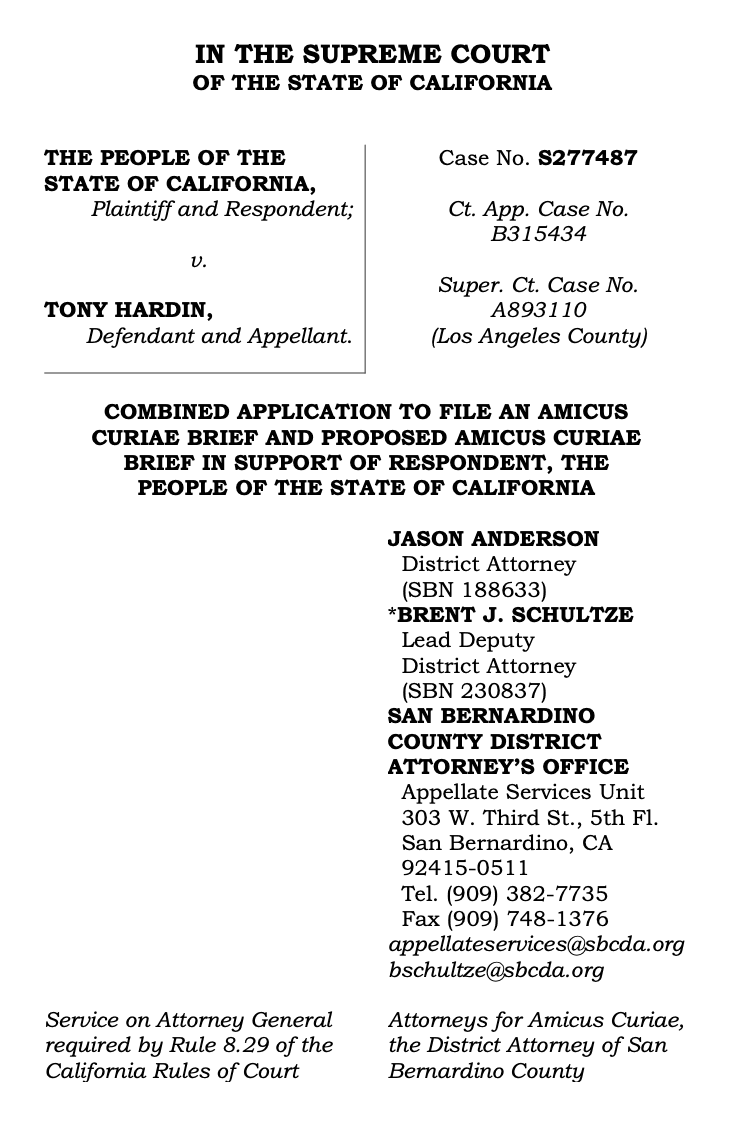
Summary of Argument
When defendant and appellant Tony Hardin was 25 years old, he robbed and murdered his senior citizen neighbor, Norma Barber. After strangling her to death, he drank her beer, smoked her cigarettes, and pawned, traded, or otherwise used some of her possessions to obtain drugs or money for drugs. Norma Barber was killed for her material possessions so that Hardin could feed his vices. After being convicted of first degree murder and the special circumstance of robbery, among other things, he was sentenced to life imprisonment without the possibility of parole.
A 25-year-old who was sentenced to prison for an offense with a lengthy but parole-eligible sentence would be considered for parole after no more than 25 years in prison, under the youthful offender parole provisions of Penal Code section 3051. The Court of Appeal in this case held that Hardin’s ineligibility for parole at any time violates the equal protection guarantee, because when the Legislature extended youthful offender parole to persons up to age 25, it was animated by concerns about youthful immaturity and brain development, not the seriousness of the offense.
The Court of Appeal did not uphold a critical distinction that is woven into the law governing parole eligibility. For some offenders, although their crimes may be serious, they may be sufficiently reformed someday to be released. For such offenders who committed their crimes when young, the Legislature has determined that the evaluation of their efforts at reform will begin no later than 25 years into their sentence.
But for other offenders, their crimes are so serious that only two punishments are provided by law: death or life imprisonment without the possibility of parole. The legislative judgment is that such offenders should never be evaluated for release; their crimes, and the corresponding risk they pose, is too great. Having committed special circumstances murder, Hardin falls under this legislative policy choice.
The Legislature has never indicated that the youthful offender parole provisions were intended to upset this clear distinction between those offenders who are eligible for parole and those who are not. Given the factual differences between the crimes committed by the two groups, the distinction is reasonable and does not violate equal protection.
Finally, the legislative policy that special circumstance murderers should never be considered for parole was made by the electorate. If youth offender parole provisions do create an equal protection violation, that benefit should be withdrawn from young adult offenders, not extended to the ineligible.